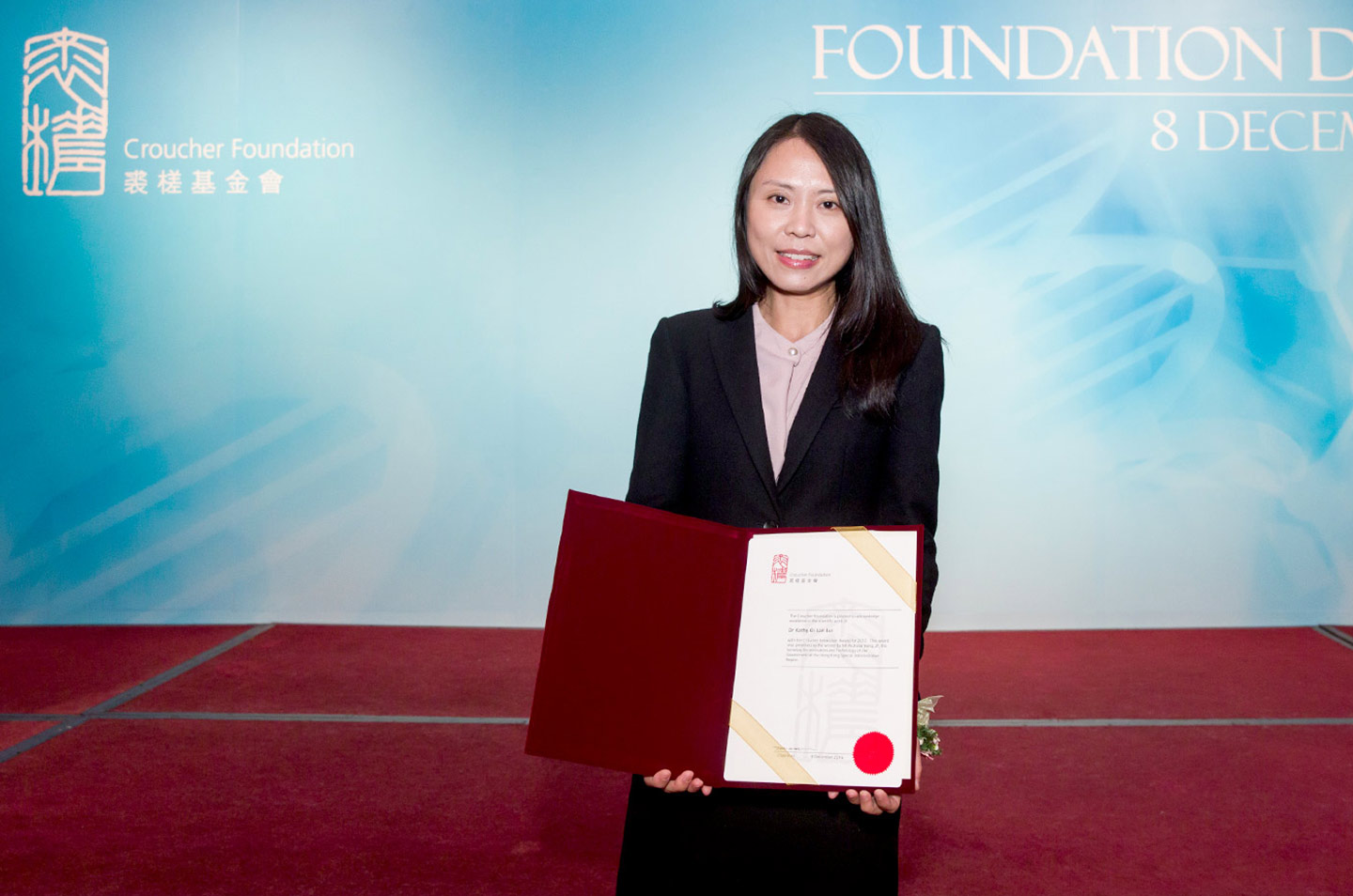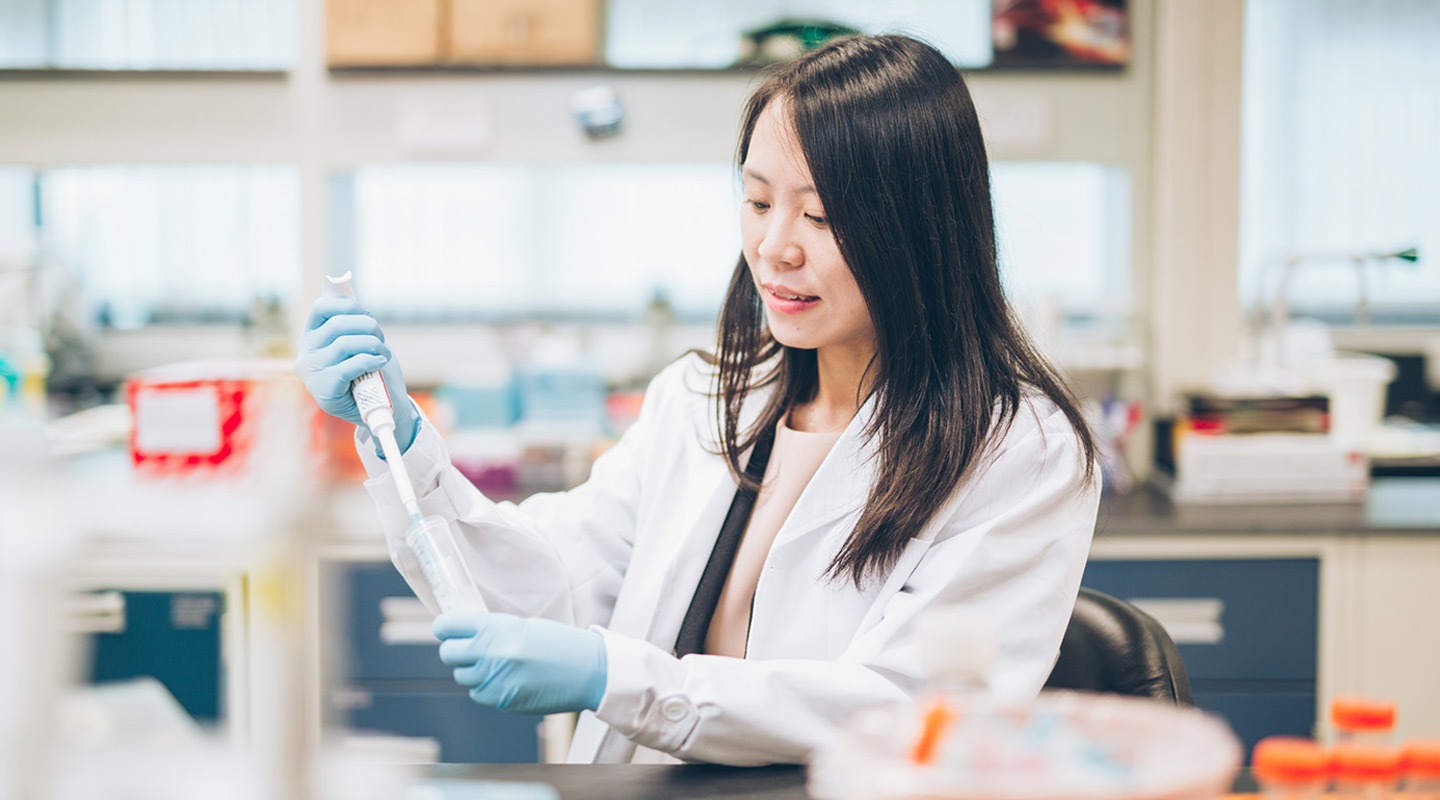Dear readers, With the launch of e-newsletter CUHK in Focus, CUHKUPDates has retired and this site will no longer be updated. To stay abreast of the University’s latest news, please go to https://focus.cuhk.edu.hk. Thank you.
Taking Work to Heart
Kathy Lui takes aim at the matter of the heart

Heart disease is the world’s leading killer, and one CUHK medical scientist has devoted herself to alleviating or heading off the onset of the condition in those at risk. Her work has contributed to a recent application to begin human trials filed in conjunction with a drug company, to study the therapeutic use of a modified form of ribonucleic acid, or RNA, into the body to encourage the production of a protein that helps create blood vessels and repair damaged hearts.
The work is the result of efforts from Professor Kathy Lui, an assistant professor in the Department of Chemical Pathology at CUHK. Her ground-breaking research saw her recently win the Croucher Innovation Award 2017 from the Croucher Foundation, recognizing ‘distinguished accomplishment in the international scientific community.’
Hong Kong-born Lui says the stringent process of shortlists and interviews to win the Croucher award was harder than securing a faculty position in Britain. She was offered principal-investigator posts at Edinburgh University, Imperial College London and University College London. But she chose to return to her home town for work, and be near her family.
It has been a round trip of necessity. When she received her undergraduate and master’s degrees from CUHK, she wanted to work with human pluripotent stem cells to explore how heart disease develops. But since no laboratory in Hong Kong was using such stem cells, deployed as a proxy for human-cell development, Professor Lui was forced abroad. She studied mouse pluripotent stem cells at Oxford University and then moved on to Harvard, where she worked with human pluripotent stem cells, which are particularly hard to work with.
‘These cells are terrible: you have to feed them every day from Monday through Sunday,’ Professor Lui says. ‘You don’t have much rest.’

The work at Harvard had continued after her postdoctoral training. It had helped her ultimately to identify the factors that initiate the creation of progenitor cells, the ‘grandparents’ of all cells in heart muscles and blood vessels. She had also begun to understand why such cells form incorrectly or malfunction in patients with heart disease.
She has discovered that RNA acts as a messenger in the process of creating vascular endothelial growth factor, or VEGF, a protein that causes blood-vessel formation in an embryo, the creation of extra blood vessels after injury to the heart, and the formation of new vessels that help bypass blocked heart vessels in pathological conditions.
Transporting human stem cells into a human patient is problematic. The patient’s body will fight against the new cells in an immune-rejection reaction. As a result, she has modified RNA so it can be introduced to the mammal body while creating no immune response.
After publishing her results of transferring modified VEGF RNA into mice in the journal Nature Biotechnology, the professor’s work has become part of an application as of July 2016 to conduct trials in humans in conjunction with the drug maker AstraZeneca. She holds three patents on her work, including one on how to modify RNA successfully.
‘In most cases, the heart can’t heal,’ she admits. ‘But if we empower the immune system maybe it can heal.’

Her next focus will be combatting heart disease stemming from diabetes. Specifically, she will use the money from the Croucher award, HK$5 million (US$640,000) over a period of five years, to study the basic pathogenesis as to why diabetic mothers have a higher risk of giving birth to babies who contract heart disease, either at birth or later in life.
Around 25% of mothers in East Asia develop hyperglycemia in pregnancy, and around 17% of mothers globally. But there’s little understanding about what causes the condition to occur, and what results from it. Babies born from mothers who already have diabetes or contract diabetes in pregnancy – the latter a malady that disappears after birth – have a fivefold chance of developing heart problems when compared with babies whose mothers have normal blood-glucose levels.
‘We don’t know the mechanism, and why those babies have higher risk – we basically know so little about that,’ Professor Lui says. ‘So I really want to know more.’
By Alex Frew McMillan
This article was originally published on CUHK Homepage in Feb 2017.